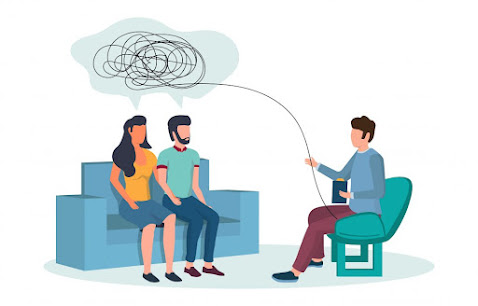From Stress Relief to Lifestyle Changes: How Health Counseling Empowers You to Take Control of Your Well-Being
In today’s fast-paced world, maintaining mental, physical, and emotional health can be a constant struggle. The pressures of work, relationships, finances, and societal expectations often lead to stress, anxiety, and unhealthy lifestyle habits. While self-help strategies and online advice can provide temporary relief, many individuals require personalized guidance to achieve lasting change. This is where health counseling becomes invaluable. Health counselling offers structured, evidence-based support that helps people manage stress, make sustainable lifestyle improvements, and regain control over their overall well-being.
Understanding the Role of Health Counselling
Health counselling is a holistic approach to wellness that goes beyond addressing immediate health concerns. It focuses on understanding the root causes of unhealthy behaviours and empowering individuals to make conscious, positive choices. A health counsellor acts as both a guide and a partner in your wellness journey, offering strategies to manage stress, improve nutrition, enhance sleep, and develop emotional resilience. Unlike traditional therapy, which often focuses primarily on mental health, health counselling integrates physical, emotional, and behavioural aspects to create a balanced and personalized plan for improvement.
Managing Stress Through Mindful Awareness
Stress is one of the most common issues addressed in health counselling. Chronic stress not only affects mood but also contributes to numerous health problems such as heart disease, high blood pressure, and weakened immunity. Health counsellors help clients identify their unique stress triggers and develop coping mechanisms that are both practical and sustainable. Through techniques like mindfulness, deep breathing exercises, and time management strategies, clients learn how to shift their response to stress. Instead of being overwhelmed by pressure, they become more aware, present, and capable of responding calmly to life’s challenges. This newfound awareness serves as the foundation for greater emotional control and enhanced daily functioning.
Building Healthy Habits for Long-Term Change
Lifestyle habits often determine the quality of one’s health. However, changing ingrained patterns of behaviour can be difficult without guidance and accountability. Health counselling provides a structured environment where individuals can set realistic goals and gradually implement meaningful changes. Counsellors focus on small, attainable steps that lead to significant results over time—whether that involves eating a balanced diet, increasing physical activity, or improving sleep hygiene. Rather than promoting quick fixes or restrictive regimens, health counselling emphasizes consistency and self-awareness. By helping clients understand their motivations and challenges, counsellors foster long-term behavioural transformation rather than short-term compliance.
Enhancing Emotional Resilience and Self-Efficacy
A significant benefit of health counselling is the development of emotional resilience—the ability to recover from setbacks and maintain motivation even during difficult times. Many people struggling with health challenges also face feelings of guilt, frustration, or helplessness. Health counsellors work to replace these negative emotions with empowerment and self-efficacy. By building confidence in one’s ability to make positive choices, individuals learn to approach wellness as a lifelong process rather than a temporary fix. This mindset shift is crucial for maintaining progress and preventing relapse into old habits.
Creating a Balanced and Fulfilling Lifestyle
True well-being is about balance—between work and rest, ambition and relaxation, giving and receiving. Health counselling encourages clients to view wellness as an integrated part of everyday life rather than an isolated goal. Counsellors help people explore how their relationships, environment, and daily routines influence their health, and they offer practical tools to align these aspects with their values. As a result, individuals begin to experience greater harmony between their physical health, mental clarity, and emotional fulfilment.
Conclusion
Health counselling is far more than a tool for stress relief—it is a transformative process that empowers individuals to take control of their well-being from the inside out. Through personalized guidance, emotional support, and actionable strategies, health counselling helps people replace unhealthy habits with sustainable ones, develop resilience, and achieve a balanced, fulfilling lifestyle. In a world that often encourages constant busyness and self-neglect, health counselling serves as a reminder that true empowerment begins with self-awareness, intentional choices, and the courage to prioritize one’s well-being.




Comments
Post a Comment